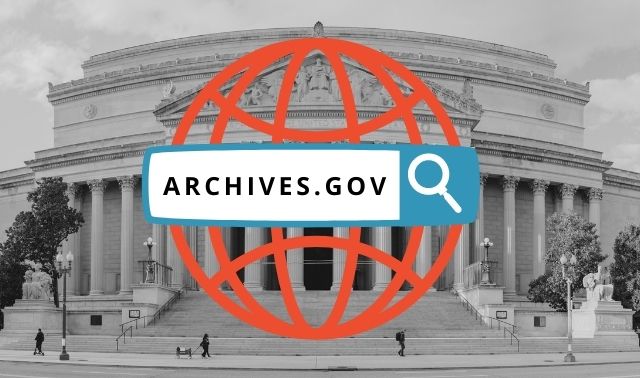Sign up for the Family Tree Newsletter! Plus, you’ll receive our 10 Essential Genealogy Research Forms PDF as a special thank you.
Get Your Free Genealogy Forms
"*" indicates required fields
Remember the last time you packed up and moved? Sorting, organizing, packing, labeling, tracking, trucking—then doing it all again in reverse order at your destination? Now imagine moving 50,000 cubic feet of microfilm, historical documents and bound volumes.
That little organizational nightmare was reality for staff and volunteers at the National Archives and Records Administration Central Plains Region facility in Kansas City. After 40 years in a cramped old warehouse tucked away in the Bannister Federal Complex, the archives’ collections, computers and business files are at home in a spacious new facility, which opened March 17. The staff kept regular research hours except for closures on Mondays several months before the move. (Research hours in the archives’ new home are Tuesday through Saturday, 8 a.m. to 4 p.m.)
“[We’re] going from being a sleepy little research facility geared toward use by historians, with limited space for the general public, to being more ‘out there’ for the community,” says outreach specialist Kimberlee Ried. “I like to say this is a paradigm shift to community education and outreach.”
Larger public spaces in the three-floor building allow for 10 additional patron computers, more exhibit space, rooms for workshops and distance learning, and a gift shop. Even the location at historic Union Station, near hotels, restaurants and the National WWI Memorial and Museum, raises Central Plains’ profile.
The Central Plains Region holds federal records as far back as the 1820s from Missouri, Kansas, Nebraska and Iowa—everything from Bureau of Indian Affairs documents to records of early post offices run from settlers’ homesteads. It also houses census and other selected national records, plus some documents pertaining to Minnesota and the Dakotas.
Just as when your family moves, most-used items—in this case, Civil War and WWII records, naturalizations and Indian censuses—were packed last and unpacked first. The archives’ 10 staff members and more than 20 volunteers kept careful tabs on each item’s location during the six months of preparation and three months of moving. Each record, book, photograph, map, roll of microfilm and architectural drawing was trackable to either the shelves in the old or new building, to one of two storage facilities or to “the caves.” Kansas City sits atop a network of limestone caves, some of which have been converted to climate-controlled storage facilities for government and business records.
The majority of the 4,000 research inquiries the archives handles each year come through the Web site, explains director Diana Duff, which eased the transition during the move. Staff work with historians and family researchers through e-mails, letters and phone calls to identify which items best suit their needs. Then they’ll pull materials and have them ready, including humidifying and flattening folded or rolled documents. Before the move, researchers were asked to send requests a few days prior to visiting.
The packing process unearthed some forgotten treasures, says Central Plains regional administrator and 41-year NARA veteran Reed Whitaker. “It’s been a thrill. Man, have we found some interesting stuff.” He mentions a court case relating to Henry Clay, brittle old newspapers documenting railroads’ heyday, and 60-year-old papers about energy independence that seem oddly relevant today.
“The move has breathed life into NARA,” Whitaker adds. “The staff views this whole thing as an experiment,” he says of their work to provide an enriching cultural environment. “If we have to scrap everything and reinvent ourselves yet again, we will do it.”
Making Contact
NARA Central Plains Region—Kansas City
400 W. Pershing Road
Kansas City, MO 64108
(816) 268-8000
<archives.gov/central-plains/kansas-city>
Research hours: Tuesday through Saturday, 8 a.m. to 4 p.m.
From the September 2009 Family Tree Magazine
ADVERTISEMENT




